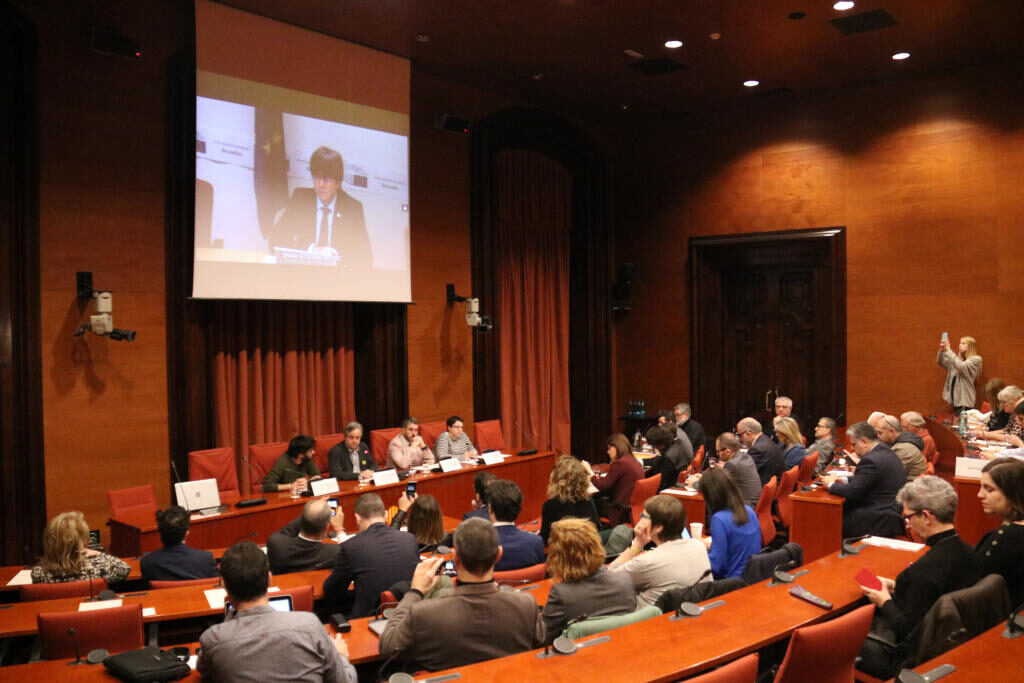05.02.2020 - 09:51
|
Actualització: 05.02.2020 - 10:51
Exiled Catalan president Carles Puigdemont made his first parliamentary appearance since 2017 to take part in the Catalan Parliament’s investigative committee on the application of direct rule. Puigdemont said that Spain suspending Catalonia’s self-rule for the eight months immediately after the October 2017 declaration of independence was a “coup d’état.” For him, it was a “dark and gloomy” period. “Spain wrote one of their darkest pages in recent times,” he added.
Puigdemont was Catalonia’s top political authority when the October 1, 2017 referendum was held, and when independence was subsequently declared in parliament on October 27, 2017. “The constitution was forced and direct rule was applied in an unconstitutional way,” expressed the newly recognized MEP before the committee.
He asked that the Spanish officials behind the direct rule, that is, the former government led by People’s Party’s Mariano Rajoy, be held responsible. Puigdemont also said that declaring independence was the “only decent and democratic option” left given Spain’s reaction to the independence push. “From then on it would not be possible to defend our rights as a national community without suffering repression,” he added via video link.
Direct rule infringed Constitution
The secretary general of the ERC party, exiled Marta Rovira, also appeared before the committee, claiming that the application of the direct rule was “a substantial modification of the Constitution,” which infringed the right to self-government in Article 2.
Rovira also testified via video link from Switzerland, saying the Senate had given the Spanish government a “blank check” in authorizing direct rule, and she warned that other autonomous communities in Spain are now also vulnerable to state intervention.
Removing Sixena artworks was “pillage”
Former Culture minister Lluís Puig referred to the removal and return to Aragon of the Sixena artworks by court order from Lleida Museum in the period of direct rule as “pillage,” while he also pointed out that a number of restoration projects were halted.
As for former MP, Mireia Boya she called the state’s response to the independence bid “psychological warfare” and was critical of the independence camp for “freezing” and putting up “little resistance,” while she also called the Catalan police “collaborateurs.”


